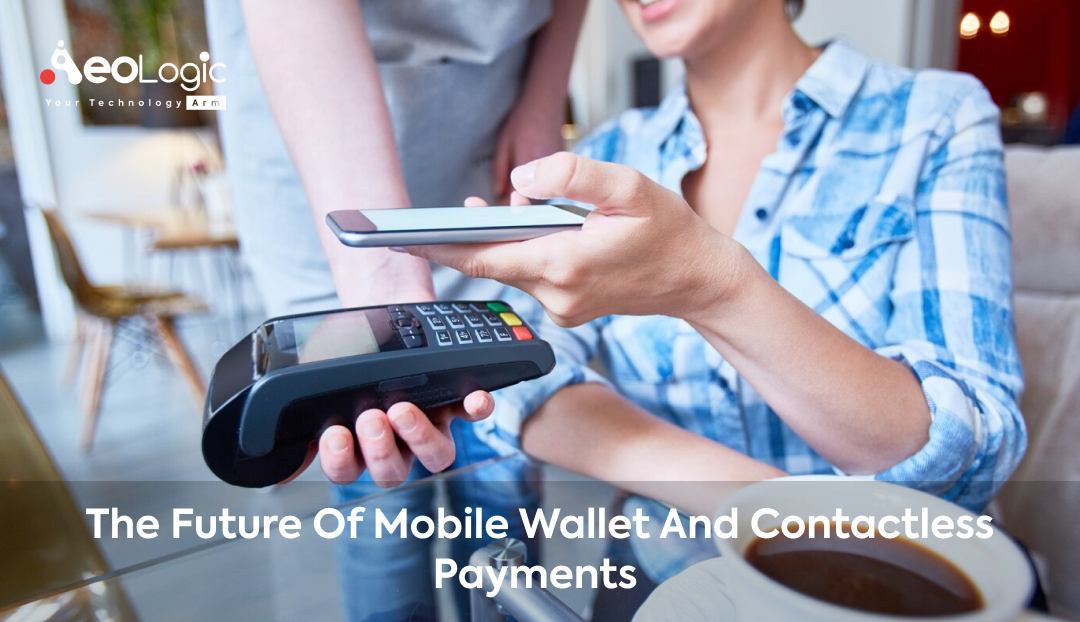Currently, users and especially the young people, digitally raised generations anticipate the best experience when it comes to their financial lives. Some of them have forgotten about traditional physical wallets and use smartphones to reuse payments briskly. For this reason, customers are looking for cutting- edge, largely secure financial solutions that make payments as easy as possible. Banks, financial enterprises, telecom providers and e-commerce companies can no longer go to ignore the mobile financial services revolution, especially the future of mobile wallet capabilities.
They also need to be more innovative than ever to offer outstanding mobile wallet features that insure not only high security but also a great client experience. In this composition, we are going to discuss the future of mobile wallet and contactless payments.
Also read: Digital Transformation Examples in Banking
Future of Mobile Wallets
Following are some of the must-have features of a future-ready digital wallet in 2024:
Enhanced Security
The future off Mobile wallets are generally considered a more secure option than physical debit or credit cards because of their important encryption. Nonetheless, numerous people are still concerned about the security of digital wallets, with 93 percent of responders citing fear of hacking as the main reason holding them back from farther use.
To make sure security, digital wallets calculate on proven security factors for instance, as tokenization and encryption that cover user details from being penetrated by unauthorized people. In this regard, security should be the top precedence for any digital wallets. This can be achieved through features for instance, as biometric authentication, encryption of sensitive data, and multi-factor authentication.
Support For Multiple Currencies
A mobile wallet that can store multiple currencies, including cryptocurrencies and fiat currencies, is more versatile and accessible for users. Virtual wallets are more accessible for users because they allow transferring payments and finances to different currency accounts in a single operation, without the need to maintain a separate account for each transnational currency.
Decentralized ID (DID) Integration
Decentralized Identity( DID) is a conception where individualities gain control over their digital identity through wallets. DID Integration with mobile wallets allows users to store their digital identity and credentials securely and translated. By integrating decentralized identity results, users have further control over their particular data and have a single identity point for multiple services.
Smooth Transactions
The digital wallet should allow users to shoot and admit payments fluently and constantly, with low transaction fees. Tips to ameliorate flawless payments for e-commerce businesses include offering multiple payment options, streamlining the payment process, and furnishing an amicable mobile experience. In the future, AI counsels, digital IDs, and biometrics will be integrated into wallets to enable further flawless ID verification, checkout, access, and travel experience. In addition, features for example, as ease of application and flawless transactions can improve the user experience with virtual wallets.
DeFi Integration
Digital wallets should have built-in integration with decentralize financial (DeFi) platforms and protocols that allow users to pierce a wide range of financial services similar as lending, borrowing, and trading. Transactions can be conducted and reused via private keys, and DeFi wallets can be integrated with web3 wallets for smartphone access.
Individualized Perceptivity and Analytics
A digital wallet that offers customers with insights and analytics on their purchasing habits and investment performance is a valuable tool for handling their financial portfolios.
The future of Mobile wallets has a great scope. Mobile wallets can give businesses with precious perceptivity into client pattern, including purchase history and spending patterns. Banks are introducing substantiated perceptivity and customized app dashboards for online and mobile banking users to display acclimatized perceptivity for each app user.
Factors to Consider Before Starting a Mobile Wallet App
Furthermore, building a mobile wallet app needs detailed planning and performance for succeeding in a competitive market. Therefore, by considering significant factors, you can establish your mobile wallet app on the journey to success. Still, it’s important to remain flexible and acclimatize to changes in the market and technology.
Following are some important factors to consider before launching a mobile wallet app:
Regulatory Conditions
Keep in mind the laws and regulations related to mobile wallets in your targeted market. Following are some of the regulatory conditions for mobile wallets:
- Know Your Customer (KYC) Conditions-Mobile wallet providers must comply with KYC conditions to corroborate the identity of their users. This helps in avoiding fraud and money
- Data Protection-Mobile wallet providers must have measures in place to cover the particular and financial data of their users. This includes data encryption and regular security checkups.
- Payment Card Industry Data Security Norms(PCI DSS)- Mobile wallet providers that accept payment card deals must comply with PCI DSS conditions, which are designed to cover cardholder data and avoid
- Anti-MoneyLaundering (AML) and Counter-Terrorism Financing (CTF) Conditions- Mobile wallet providers must have measures in place to avoid money laundering and the backing of terrorism.
- Consumer Protection-Mobile wallet providers must give clear and concise knowledge about their fees, services, and terms and conditions. They must also have a complaints procedure in place to deal with client complaints and controversies.
- Interoperability-Some regulatory bodies may bear mobile wallet providers to make their services interoperable with other payment systems to insure that consumers have a choice of payment options.
The specific regulatory conditions for mobile wallets may vary depending on the country or region where the service is offered. It’s important for mobile wallet providers to stay up to date with the most advanced regulatory developments and comply with all applicable conditions to insure the security and trustability of their services.
Also read: Common Mobile App Development Mistakes and How to Avoid Them
Conclusion
Overall, the convenience, security, and wide acceptance of mobile wallets have contributed to their growing fashionability in recent times. As further and further consumers borrow this technology, it’s likely that mobile wallets will come as a highly important part of the payments geography. Nonetheless, if you are going to launch the e-wallet solution we are here to help you start the financial business smoothly and quickly.







